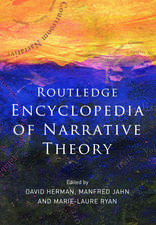Asymmetries between Language Production and Comprehension: Studies in Theoretical Psycholinguistics, cartea 42
Autor Petra Hendriksen Limba Engleză Hardback – 13 aug 2013
Emphasizing the unique and sometimes competing demands of listener and speaker, the author examines resulting asymmetries between production and comprehension. The text offers examples of the interpretation of word order and pronouns by listeners, and word order freezing and referential choice by speakers. It is explored why the usual symmetry breaks down in children but also sometimes in adults.
Gathering contemporary insights from theoretical linguistic research, psycholinguistic studies and computational modeling, Asymmetries between Language Production and Comprehension presents a unified explanation of this phenomenon.
“Through a lucid, comprehensive review of acquisition studies on reference-related phenomena, Petra Hendriks builds a striking case for the pervasiveness of asymmetries in comprehension/production. In her view, listeners systematically misunderstand what they hear, and speakers systematically fail to prevent such misunderstandings. She argues that linguistic theory should take stock of current psycholinguistic and developmental evidence on optionality and ambiguity, and recognize language as a signaling system. The arguments are compelling yet controversial: grammar does not specify a one-to-one correspondence between form and meaning; and the demands of the mapping task differ for listeners and speakers. Her proposal is formalized within optimality theory, but researchers working outside this framework will still find it of great interest. In the language-as-code vs. language-as-signal debate, Hendriks puts the ball firmly in the other court.” Ana Pérez-Leroux, University of Toronto,Canada
| Toate formatele și edițiile | Preț | Express |
|---|---|---|
| Paperback (1) | 638.11 lei 43-57 zile | |
| SPRINGER NETHERLANDS – 25 aug 2015 | 638.11 lei 43-57 zile | |
| Hardback (1) | 644.30 lei 43-57 zile | |
| SPRINGER NETHERLANDS – 13 aug 2013 | 644.30 lei 43-57 zile |
Din seria Studies in Theoretical Psycholinguistics
- 18%
 Preț: 948.61 lei
Preț: 948.61 lei - 18%
 Preț: 1222.31 lei
Preț: 1222.31 lei - 15%
 Preț: 641.53 lei
Preț: 641.53 lei - 18%
 Preț: 947.50 lei
Preț: 947.50 lei - 15%
 Preț: 645.79 lei
Preț: 645.79 lei -
 Preț: 381.81 lei
Preț: 381.81 lei - 18%
 Preț: 2103.56 lei
Preț: 2103.56 lei -
 Preț: 383.83 lei
Preț: 383.83 lei - 15%
 Preț: 647.27 lei
Preț: 647.27 lei - 18%
 Preț: 951.77 lei
Preț: 951.77 lei - 15%
 Preț: 643.34 lei
Preț: 643.34 lei - 18%
 Preț: 948.61 lei
Preț: 948.61 lei - 20%
 Preț: 649.09 lei
Preț: 649.09 lei - 18%
 Preț: 956.99 lei
Preț: 956.99 lei -
 Preț: 381.98 lei
Preț: 381.98 lei - 15%
 Preț: 643.48 lei
Preț: 643.48 lei - 18%
 Preț: 952.72 lei
Preț: 952.72 lei - 15%
 Preț: 645.47 lei
Preț: 645.47 lei - 18%
 Preț: 1228.62 lei
Preț: 1228.62 lei - 15%
 Preț: 647.27 lei
Preț: 647.27 lei - 18%
 Preț: 945.47 lei
Preț: 945.47 lei - 18%
 Preț: 956.03 lei
Preț: 956.03 lei - 15%
 Preț: 642.03 lei
Preț: 642.03 lei -
 Preț: 391.61 lei
Preț: 391.61 lei - 20%
 Preț: 558.62 lei
Preț: 558.62 lei - 15%
 Preț: 639.73 lei
Preț: 639.73 lei - 18%
 Preț: 947.50 lei
Preț: 947.50 lei - 18%
 Preț: 958.25 lei
Preț: 958.25 lei
Preț: 644.30 lei
Preț vechi: 758.01 lei
-15% Nou
Puncte Express: 966
Preț estimativ în valută:
123.29€ • 129.05$ • 102.61£
123.29€ • 129.05$ • 102.61£
Carte tipărită la comandă
Livrare economică 31 martie-14 aprilie
Preluare comenzi: 021 569.72.76
Specificații
ISBN-13: 9789400769007
ISBN-10: 9400769008
Pagini: 195
Ilustrații: XI, 234 p.
Dimensiuni: 155 x 235 x 22 mm
Greutate: 0.53 kg
Ediția:2014
Editura: SPRINGER NETHERLANDS
Colecția Springer
Seria Studies in Theoretical Psycholinguistics
Locul publicării:Dordrecht, Netherlands
ISBN-10: 9400769008
Pagini: 195
Ilustrații: XI, 234 p.
Dimensiuni: 155 x 235 x 22 mm
Greutate: 0.53 kg
Ediția:2014
Editura: SPRINGER NETHERLANDS
Colecția Springer
Seria Studies in Theoretical Psycholinguistics
Locul publicării:Dordrecht, Netherlands
Public țintă
ResearchCuprins
1 Understanding and Misunderstanding .- 2 Asymmetries in Language Acquisition .- 3 The Listener’s Perspective .- 4 The Speaker’s Perspective .- 5 Symmetry and Asymmetry Across Languages .- 6 Competing Perspectives .- Appendix .- Index.
Textul de pe ultima copertă
This book asserts that language is a signaling system rather than a code, based in part on such research as the finding that 5-year-old English and Dutch children use pronouns correctly in their own utterances, but often fail to interpret these forms correctly when used by someone else.
Emphasizing the unique and sometimes competing demands of listener and speaker, the author examines resulting asymmetries between production and comprehension. The text offers examples of the interpretation of word order and pronouns by listeners, and word order freezing and referential choice by speakers. It is explored why the usual symmetry breaks down in children but also sometimes in adults.
Gathering contemporary insights from theoretical linguistic research, psycholinguistic studies and computational modeling, Asymmetries between Language Production and Comprehension presents a unified explanation of this phenomenon.
“Through a lucid, comprehensive review of acquisition studies on reference-related phenomena, Petra Hendriks builds a striking case for the pervasiveness of asymmetries in comprehension/production. In her view, listeners systematically misunderstand what they hear, and speakers systematically fail to prevent such misunderstandings. She argues that linguistic theory should take stock of current psycholinguistic and developmental evidence on optionality and ambiguity, and recognize language as a signaling system. The arguments are compelling yet controversial: grammar does not specify a one-to-one correspondence between form and meaning; and the demands of the mapping task differ for listeners and speakers. Her proposal is formalized within optimality theory, but researchers working outside this framework will still find it of great interest. In the language-as-code vs. language-as-signal debate, Hendriks puts the ball firmly in the other court.” Ana Pérez-Leroux, University of Toronto, Canada
Emphasizing the unique and sometimes competing demands of listener and speaker, the author examines resulting asymmetries between production and comprehension. The text offers examples of the interpretation of word order and pronouns by listeners, and word order freezing and referential choice by speakers. It is explored why the usual symmetry breaks down in children but also sometimes in adults.
Gathering contemporary insights from theoretical linguistic research, psycholinguistic studies and computational modeling, Asymmetries between Language Production and Comprehension presents a unified explanation of this phenomenon.
“Through a lucid, comprehensive review of acquisition studies on reference-related phenomena, Petra Hendriks builds a striking case for the pervasiveness of asymmetries in comprehension/production. In her view, listeners systematically misunderstand what they hear, and speakers systematically fail to prevent such misunderstandings. She argues that linguistic theory should take stock of current psycholinguistic and developmental evidence on optionality and ambiguity, and recognize language as a signaling system. The arguments are compelling yet controversial: grammar does not specify a one-to-one correspondence between form and meaning; and the demands of the mapping task differ for listeners and speakers. Her proposal is formalized within optimality theory, but researchers working outside this framework will still find it of great interest. In the language-as-code vs. language-as-signal debate, Hendriks puts the ball firmly in the other court.” Ana Pérez-Leroux, University of Toronto, Canada
Caracteristici
Offers the first unified explanation of several asymmetries between language production and language comprehension Asserts that grammar is shaped by the competition between the speaker’s perspective and the hearer’s perspective Combines insights in theoretical linguistics, psycholinguistics and computational modeling on the organization, use and acquisition of language












